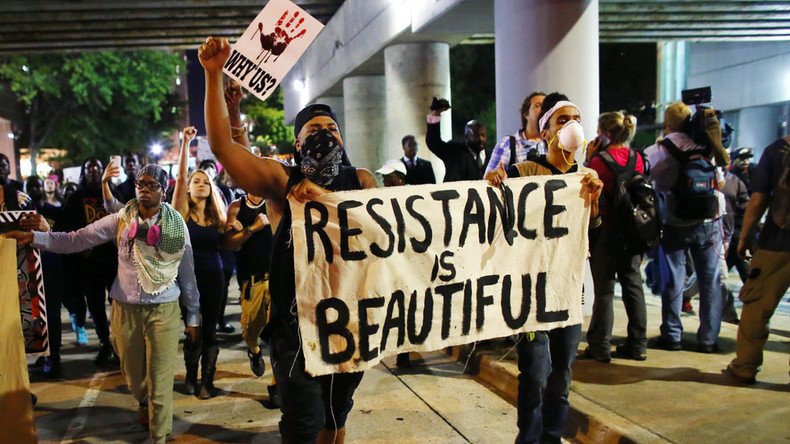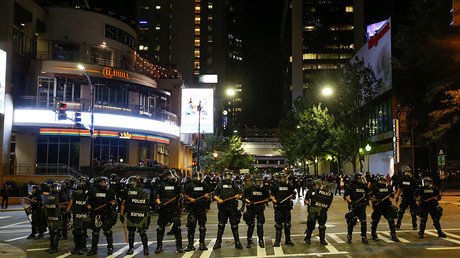DOJ to begin collecting police shooting and use-of-force data

Police accountability is increasingly a hot button issue, and the Justice Department’s lack of data on police shootings has been an object of scrutiny. The DOJ now says that it will start collecting nationwide data on violent encounters next year.
Attorney General Loretta Lynch released a plan from the Department of Justice (DOJ) to further police accountability Thursday evening. Currently, the most accurate databases on police shootings are operated by news outlets and other private initiatives, such as the Washington Post’s database and Fatal Encounters.
The DOJ has kept no comprehensive database or record of police shootings and only used voluntarily reported numbers provided by local law enforcement agencies. Only two states are required to report officer-involved deaths. The reports from these states have been found to be inaccurate, further frustrating activists.
Police, protesters #clash in #Oregon over union contract, bodycam accountabilityhttps://t.co/zv4gRLfUeg
— RT America (@RT_America) October 13, 2016
“I can’t believe two years into this crisis that we’re still having conversations about data,” Kanya Bennett, a lawyer in Washington for the American Civil Liberties Union, told the New York Times.
Bennett is not the only one who has expressed her frustration with the void of information. Last year, FBI Director James B. Comey called the lack of data “embarrassing” and said, “We can’t have an informed discussion because we don’t have data.”
“People have data about who went to a movie last weekend, or how many books were sold,” Comey said, “and I cannot tell you how many people were shot by police in the United States last month, last year, or anything about the demographic. And that’s a very bad place to be.”
The DOJ’s plan would make the FBI responsible for developing a pilot program to gather data from federal agents, while the DOJ would be responsible for collecting data on both officer-related shootings as well as in-custody deaths from local and state law enforcement agencies.
The FBI’s program would also study the methodology used by law enforcement.
"The pilot study participants are expected to include the largest law enforcement agencies, as well as the FBI, Bureau of Alcohol, Tobacco, Firearms and Explosives, Drug Enforcement Administration and U.S. Marshals Service," the FBI said.
The plan allocates $750,000 to a “police data initiative” to help local departments collect and disseminate information on police activities, such as stops and searches of citizens, shootings and use of force.
However, there are some issues with the plan. Bennett criticized the DOJ for failing to outline plans for financial penalties against states that don’t report. The DOJ has had that right since 2014. In addition, Congress passed a measure that same year that required local departments to report fatal encounters. Whether the Death in Custody Reporting Act has been enforced is another question.
The ACLU and 95 other agencies released a letter to the DOJ this week that urged for more accountability by imposing harsher financial penalties for not submitting inaccurate reports.













